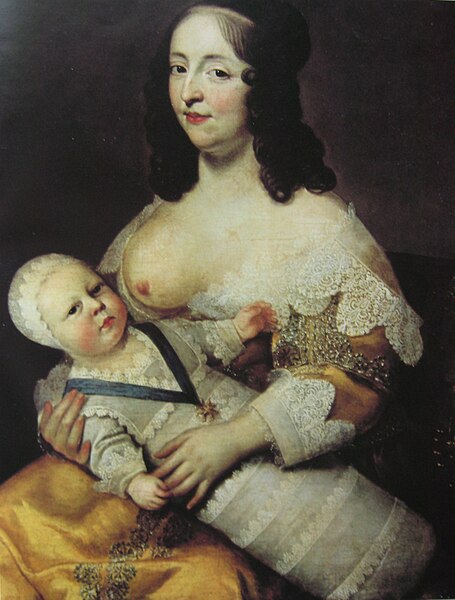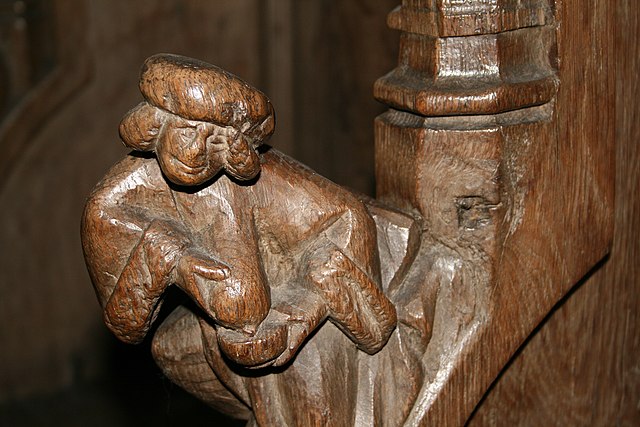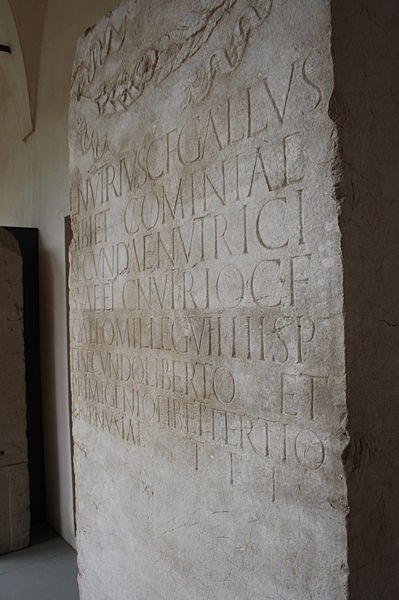Geneviève Poitrine, known as Madame Poitrine, was a wet nurse of the Dauphin of France, Louis Joseph, son of King Louis XVI and Queen Marie Antoinette. Poitrine was retrospectively accused of transmitting tuberculosis to the infant prince, thus inadvertently causing his death, aged seven years; this meant that his younger brother Louis Charles became heir apparent. The word poitrine translates to "chest" or "bosom", and her married name of Madame Poitrine was remarked upon by contemporaries as being appropriate for her duties.
Alleged portrait of Madame Poitrine, nurse of the first Dauphin by "A de Peters"
A wet nurse is a woman who breastfeeds and cares for another's child. Wet nurses are employed if the mother dies, or if she is unable or chooses not to nurse the child herself. Wet-nursed children may be known as "milk-siblings", and in some societies, the families are linked by a special relationship of milk kinship. Wet-nursing existed in societies around the world until the invention of reliable formula milk in the 20th century. The practice has made a small comeback in the 21st century.
Louis XIV as an infant with his nurse Longuet de la Giraudière
A 16th-century carving in a Belgian church, showing a woman expressing her milk into a bowl.
A Russian wet nurse, c. 1913
A funerary stele (akin to a gravestone) erected by Roman citizen Lucius Nutrius Gallus in the 2nd half of the 1st century AD for himself, his wet nurse, and other members of his family and household





